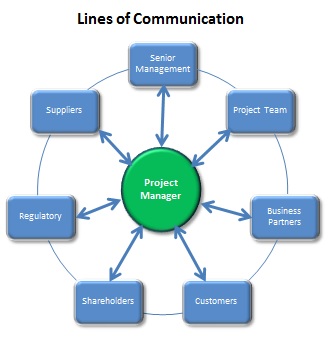Projects are started for all sorts of beneficial reasons. Increasing revenue, improving efficiency, refining operational governance and control – these are just a few of the ‘battle cries’ which mobilise effective change in today’s business world.
The problem is that even though projects start with the best of intentions, many go wrong and either fail to deliver at least part if not all of the original vision, or encounter significant issues along the way. This results in a business becoming afraid to evolve, which enables competitors to attain operational advantages through agility and a lower operational cost base thus eroding your bottom line revenues. Below we have elaborated upon this and outlined how you can ensure that your business is the ‘agile’ one that is deriving competitive advantage…
Concerns
A recent report from McKinsey 1 showed 45% of large scale IT projects ran over budget, and 56% failed to deliver as much value as was originally forecasted. 17% of projects were so disastrous they threatened the very existence of the company!
Another report- this time by Geneca 2 – showed that internal confidence in projects was of key concern- 75% felt unclear project objectives and inadequate communication channels affected confidence so badly they felt their projects were unlikely to succeed, and 78% felt the rest of their business was insufficiently in tune with their large scale projects to provide appropriate support.
Control and Communication
These reports show two distinct vulnerabilities- Control and Communication. Expert Project Management safeguards against this by combining core organisational and communication skills into the delivery of a very real ‘Centre of Excellence’ model, which many are striving to achieve in today’s economic climate.
Employing a suitable and proven methodology (Prince 2, MSP, 6 Sigma, PMI etc.) will provide a robust framework from which to run the project, but care must be taken not to allow the process of running a project overtake the actual delivery- too many projects get caught up in process red tape so experience and pragmatism play a part here.

The real cornerstone of Project Management – and the concept that is frequently undervalued and missed – is simple, it is ‘communication’.
From agreeing and communicating the aims and deliverables, identifying and engaging with the key stakeholders (and their explicit needs) and ensuring that all messages, decisions and discussions involve all the appropriate people. All too often ‘communication’ is defined purely by whether the project is progressing and culminates in a weekly update / progress report in your inbox that although a contributor to the communication strategy is by no means the be all and end all of your interaction with the Project Manager (PM).
A good PM will identify the best communication channels to use for the various stakeholders, and not rely on the ones they find easiest. E-mail is great for quick chats, but generally face-to-face meetings work best for key decision meetings and to obtain and maintain engagement. Studies by Rockmann and Northcraft 3 showed face-to-face meetings generated significantly more trust and collaboration than any other form of communication. While it might not be possible or appropriate to have every meeting as a face-to-face, every effort should be made to meet up with the various stakeholder groups on a regular basis.
Coordination
A good Project Manager should simplify and clarify, no matter how complex the task in hand may be. An example of this is in managing a multi-location desktop refresh – something that many global and locally led International organisations will be faced with shortly when Microsoft withdraws support for Windows XP in June 2014 (4). The added difficulties of managing change ‘simultaneously’ across different jurisdictions – which may have different legal, language and cultural barriers – need very careful consideration, planning and stakeholder engagement. Communication skills will either make or break this type of project, as will the PM’s organisational ability.
Over the years many companies have opened new office locations so quickly that technical standardisation and ease of support were secondary requirements to speed of delivery. This has resulted in many companies having offices which have bespoke and unique setups, and therefore a greatly increased total cost of ownership (TCO). The natural tendency in today’s operational environment is now to standardise the remote office set up for deployment while upgrading. This means co-ordinating telecommunications, infrastructure, servers, desktop, policies and procedures all wrapped in an adapted ITIL service delivery model to enable a more efficient support process based upon standards e.g. A remote office of five business development people will require a very different ‘template’ and set up to an outsourced operational hub with a hundred Trust Administrators and Accountants.
Conclusion
A good PM will balance Control, Communication and Coordination effectively to ensure the project is well defined, with the aims comprehensively understood by all parties. Stakeholders will be effectively engaged, and responsibilities will be appropriately distributed. Milestones will be cemented and adhered to, with suitable provision to overcome any unforeseen issues which might crop up along the way. A good PM is essential to the successful completion of a project.
Matthew Quinn is a Project Management Consultant for Prosperity 24.7, Jersey’s fastest growing IT and Management Consultancy (www.prosperity247.com). Matthew is a highly versatile PRINCE2 Practitioner & PMP Qualified Senior Project Manager with 11 years’ experience in various areas of IT, as well as HR, Finance, Administration and Team Management.
Citations
1 McKinsey- 2012: http://www.mckinsey.com/insights/business_technology/delivering_large-scale_it_projects_on_time_on_budget_and_on_value
2 Geneca- 2011: http://www.geneca.com/75-business-executives-anticipate-software-projects-fail/
3 http://news.illinois.edu/news/10/0616comm.html
4 http://www.microsoft.com/en-us/windows/endofsupport.aspx





